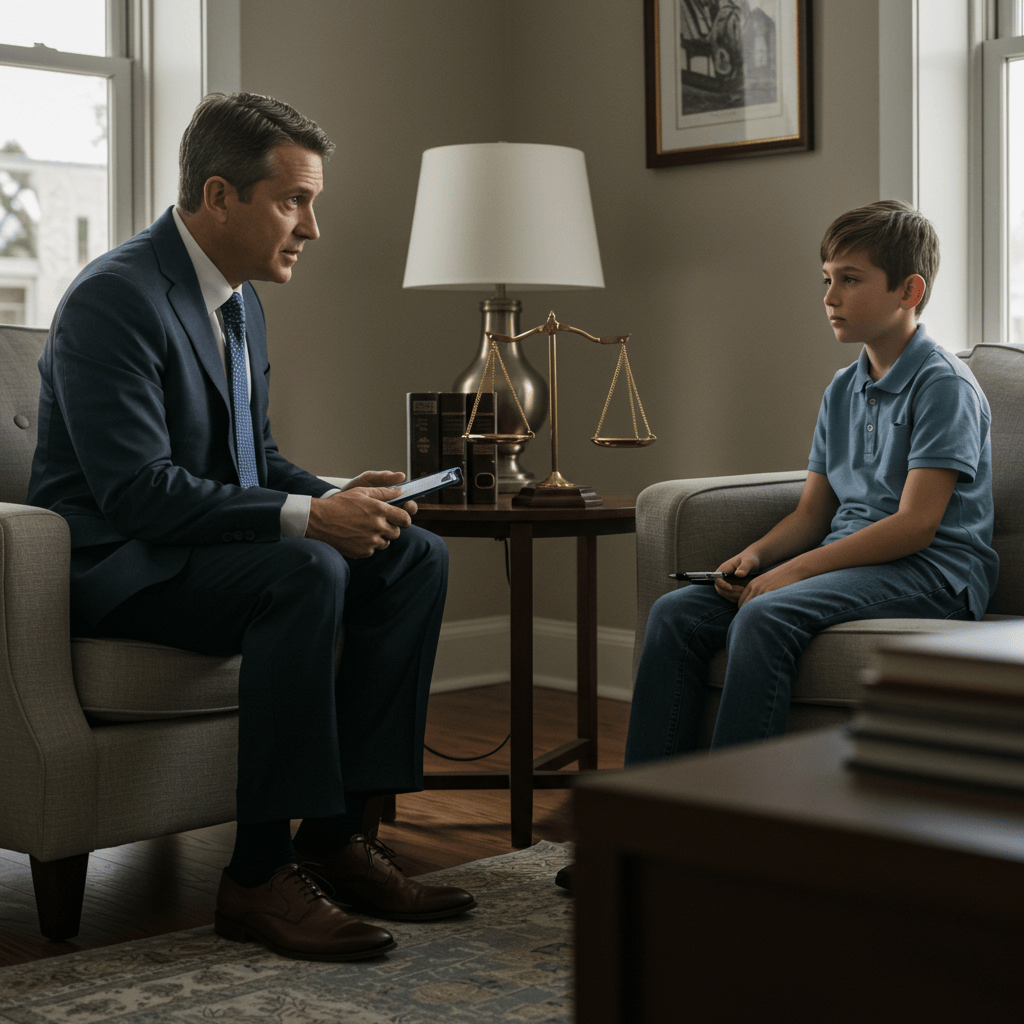
Endorsed by the Chief Justice (Division 1) and Chief Judge (Division 2) of the Federal Circuit and Family Court of Australia and the Chief Judge of the Family Court of Western Australia. In this blog, we explore the Guidelines for Independent Children’s Lawyers.
Purpose of these Guidelines

These Guidelines aim to provide clarity and practical guidance to Independent Children’s Lawyers (ICLs) in fulfilling their unique and vital role within family law proceedings. They also serve to inform legal practitioners, parties to proceedings, children, and other stakeholders of the expectations the courts hold in relation to ICL conduct.
These expectations apply particularly to matters involving:
Allegations of child abuse and/or family violence
Children from culturally and linguistically diverse backgrounds
Children with disabilities
Aboriginal and Torres Strait Islander children
Applications for authorisation of special medical procedures and other welfare-related orders
This public document is formally endorsed by the leadership of the family courts and will also be used in the training and development of ICLs across Australia.
Introduction
The role of the ICL is distinct within the family law system. An ICL is appointed to independently represent and advocate for the best interests of the child. This role is governed by legislation, specifically Division 10 of Part VII of the Family Law Act 1975, but also relies heavily on the professional judgment and discretion of the appointed lawyer.
While the approach taken by an ICL in any given case may not always be agreeable to the parties or even the child, this does not signify a failure in their duty. The ICL’s decisions are guided by legal principles, evidence, and what best supports the child’s welfare and safety—not popularity or consensus.
Practical limitations, such as funding constraints, may also impact the extent of the ICL’s involvement or actions.
Statement of Principles
The appointment of an ICL is a mechanism to give effect to Australia’s obligations under the United Nations Convention on the Rights of the Child, particularly the following principles:
Article 3.1: The best interests of the child shall be a primary consideration in all actions concerning children.
Article 12.1: Children capable of forming their own views have the right to express those views freely in all matters affecting them.
Article 12.2: Children should be provided the opportunity to be heard in judicial and administrative proceedings—either directly or through a representative.The Role of the ICL
The Role of the ICL
Best Interests Advocacy

The ICL acts impartially and independently from both the court and the parties, with a singular focus on what is in the child’s best interests.
While the ICL is not the child’s legal representative in the conventional sense (they do not take instructions from the child), they must ensure that the court is informed of the child’s views, preferably in an admissible form.
Child Participation
The child’s involvement in the proceedings should be guided by:
Their willingness to engage
Their age, maturity, and cognitive development
Emotional state and expressed wishes
Importantly, enabling participation does not mean the child becomes the decision-maker. The ICL uses their discretion to determine the appropriate degree of involvement.
Professional Conduct
An ICL must:
Foster a professional, respectful relationship with the child
Collaborate constructively with Family Consultants, experts, and other professionals
Seek to resolve matters in a timely and child-focused manner
Highlight to the court any serious concerns regarding proposed settlements
Base all submissions on admissible evidence, avoiding personal bias or opinion
Make informed submissions in support of particular outcomes if they believe it to be in the child’s best interests
Seek peer support or further direction from the court when matters exceed their expertise
Conclusion
The responsibilities of an Independent Children’s Lawyer are critical to the effective functioning of the Australian family law system. These Guidelines provide a structured framework for the ICL to operate with integrity, professionalism, and a deep commitment to the best interests of the child. While the role can be complex and demanding, the ICL serves as a vital safeguard in ensuring that children’s voices are heard and their welfare prioritised in family law proceedings.
Need help?
Contact the Brisbane family law team at James Noble Law today for a FREE 20-minute consultation no obligation. To schedule an appointment with one of our Qualified and experienced Affordable Family lawyers in Brisbane.
Find Brisbane family lawyers on Google Maps near you.
You may also like to know more information about the
- What is an Independent Children Lawyer (ICL).
- Parental Responsibilities and Children Issues.
- Parenting Orders for Children with Special Needs.
- Sleeping Arrangements: Overnight Time in Parenting Matters Explained.
- PARENTING – Schooling – Where the parents seek that their children attend different schools.


